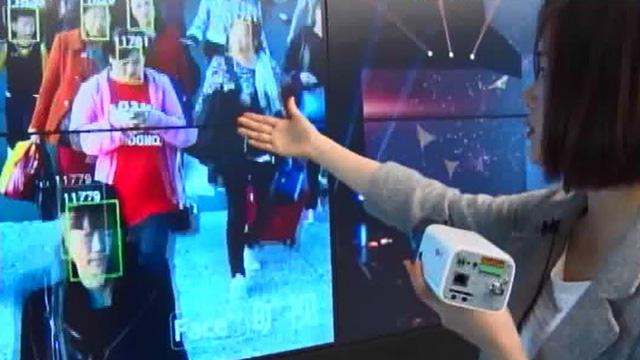In major cities like Shanghai, facial recognition is being used increasingly. Some ATMs no longer require bank cards; to withdraw money, all you have to do is show your face to the machine. And an unmanned shop opened last November; to pay, you turn your face to the camera as you leave.
A company in Beijing is at the forefront of this technology. The firm says its system can identify over a hundred people on a monitor in less than a second. It says the system even works through makeup or hairstyle changes.
A spokesperson says if used in tandem with a database, the system can identify every car and pedestrian on a street.
Chinese government's steps to improve security
In his speech at last month's National People's Congress, President Xi stressed how important technology is to his country's future. He said continued technological advances would lead to sustained economic growth.
The government has been pushing the use of facial recognition for security. At a security equipment trade show held this April in Henan Province, manufacturers were eager to explain how much their products contribute to state security.
One company claimed its products had helped authorities detect the signs of a nascent protest march, and prevented it from spreading. The company said the trust of the state means higher sales.
170 million security cameras are reportedly in operation across the country. And armed with facial recognition, they make government surveillance even more effective.
In Shenzhen, cameras with facial recognition have been installed to monitor traffic. The system immediately identifies people who don't heed red lights. Authorities then post their names online, with photos. The system is said to have caught more than 13,000 offenders in just six months.
One resident says it's excellent, as it encourages people to obey traffic laws. Another disagrees, saying she doesn't like the idea of shaming offenders online.
The authorities also appear to be using the technology to keep an eye on disgruntled citizens. A man who works for a state-run company posted a critical comment online after an abrupt salary cut. Later, he noticed a security camera installed across the street from his home. He says one day a police officer asked for his ID and took him away for questioning. He says the experience made him feel like a slave.
The government insists that its use of cutting edge-technology is not specifically for surveillance. It says it is also looking into AI and big data to create opportunities for further economic growth. But for some in China, the potential for these advances to be used in surveillance is concerning.
